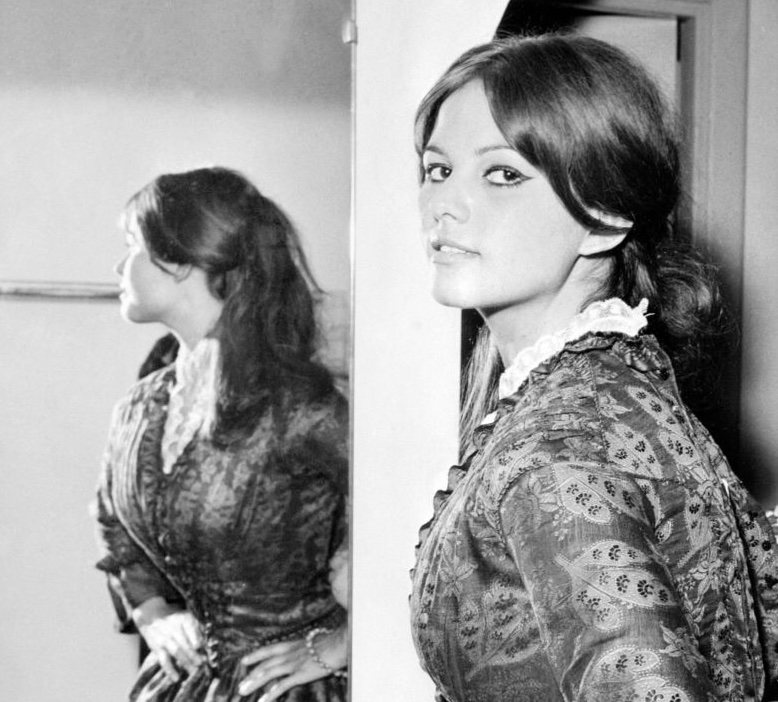The Italian actress Claudia Cardinale has died at the age of 87. Often described in the 1960s by the press as “the most beautiful woman in the world”, she died on 23 September.
She was "the most important Italian film actress to emerge in the Swinging Sixties, the golden age of Italian cinema", reports the Daily Telegraph.
Cardinale was born on 15 April 1938, in La Goulette, near Tunis, the capital of Tunisia, which had a large Italian community, the two countries being a couple of hours' boat ride apart – her grandparents had come from Sicily to Tunisia at the beginning of the 20th century.
She was sent by her second-generation Sicilian parents for her education – along with her younger sister Blanche – to the convent of Saint Joseph de l’Apparition, a private school in Carthage.
She was a “rebellious child, frequently punished at school”, but while described as “silent, weird and wild”, she was nevertheless a bright student and accomplished athlete, whose initial intention was to become a school teach or an explorer, the Telegraph notes.
Her “devastating looks” resulted in her being spotted as an 18-year-old and “whisked” off to the Venice Film Festival, where she caught the eye of paparazzi, directors and producers.
Around the same time, she became pregnant “by rape” and decided – against the wishes of the father – to have the child. While pregnant, she was offered by the Italian director Franco Cristaldi a seven-year contract with his production company Vides.
She accepted it – Cristaldi insisted her pregnancy was kept secret; Cardinale worked until two months before the birth – and her first film, I Soliti Ignoti, was a big success after which, in the words of the Telegraph, "her fate was sealed".
Cardinale would later say: "I was no longer mistress of my body nor my thoughts ... Everything was in the hands of Vides."
At the time, she asked Cristaldi to terminate her "stifling contract", reports the Telegraph, with Cardinale being "tormented by thoughts of suicide".
Instead, the film director sent her to London to give birth – under the auspices of having gone there to learn English. Her son, Patrizio (Patrick), was reportedly baptised at St Patrick’s Catholic Church in London.
He initially grew up cared for by Cardinale’s family, thinking his mother was his sister. As a result, “he never found his feet in life and never forgave her, which scarred her entire life”, reports the Telegraph.
It notes that despite her personal travails, her “golden moment” in cinema came in 1963, when she "played the siren in three movies that would become classics".
Alongside her appearance in 8½, an avant-garde comedy-drama co-written and directed by Federico Fellini, she appeared in the epic period filmThe Leopard. The third film she made that year was The Pink Panther with Peter Sellers and David Niven, the latter of whom described Cardinale as “Italy’s happiest invention after spaghetti”.
One of her most memorable roles in the late 1960s was as the former prostitute Jill McBain in Sergio Leone's 1968 Western classic Once Upon a Time in the West. By that stage the actress had moved to Hollywood, but she did not like it there, commenting:
"They invited anyone who was anyone in Europe ... obviously because they wanted to have a monopoly of the stars, but more often than not they destroyed you: you went to America and you came back and you were no longer anyone."
Despite numerous requests, reports the Telegraph, she never appeared naked in films, with Cardinale saying: “I’ve never revealed myself or even my body in films. Mystery is very important.”
In her latter years, the Telegraph adds, she “wore nothing but Armani, used her Palme d'Or [award] as a doorstop in her Paris apartment, and remained a dedicated smoker to the end”.
Photo: Picture dated 1962 of Italian actress Claudia Cardinale playing Angelica in Luchino Visconti's 'The Leopard'. (Photo by STF/AFP via Getty Images.)

















